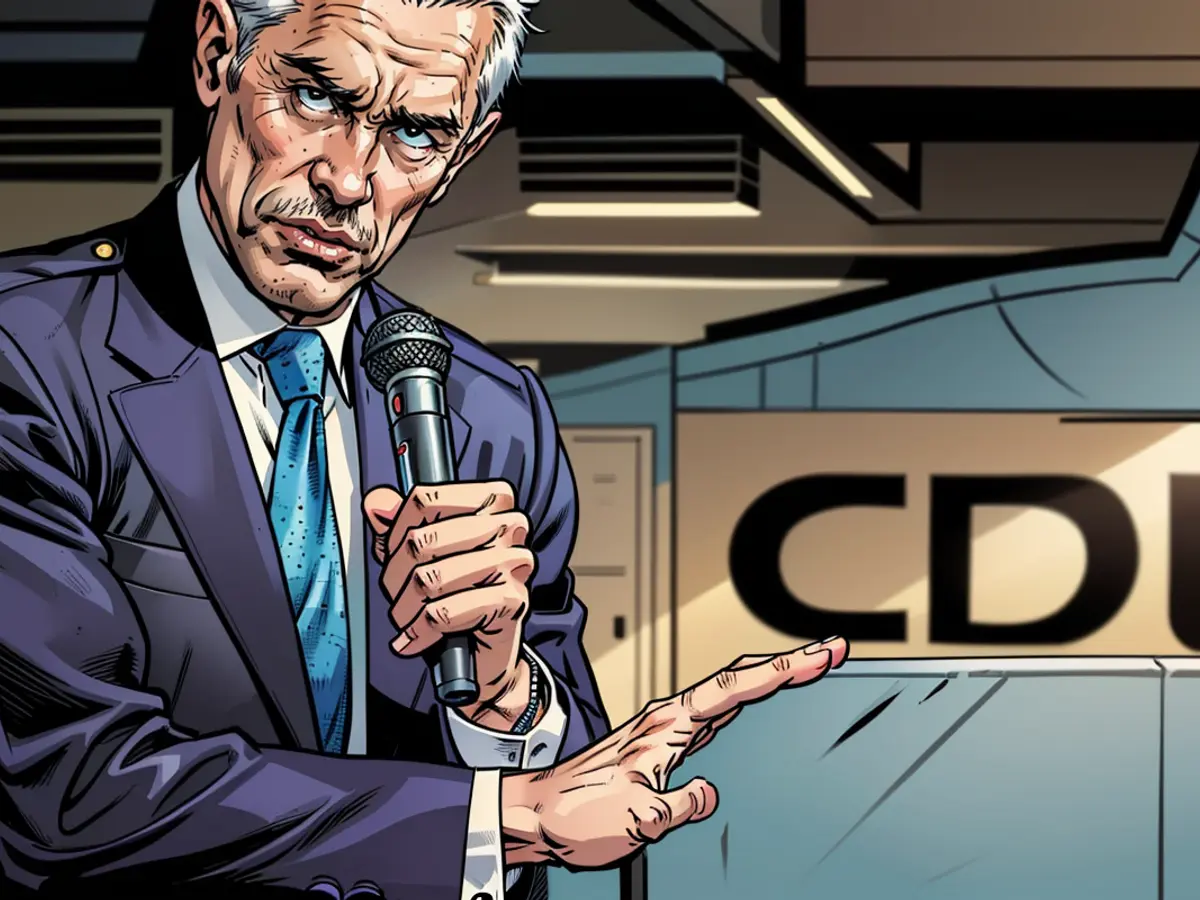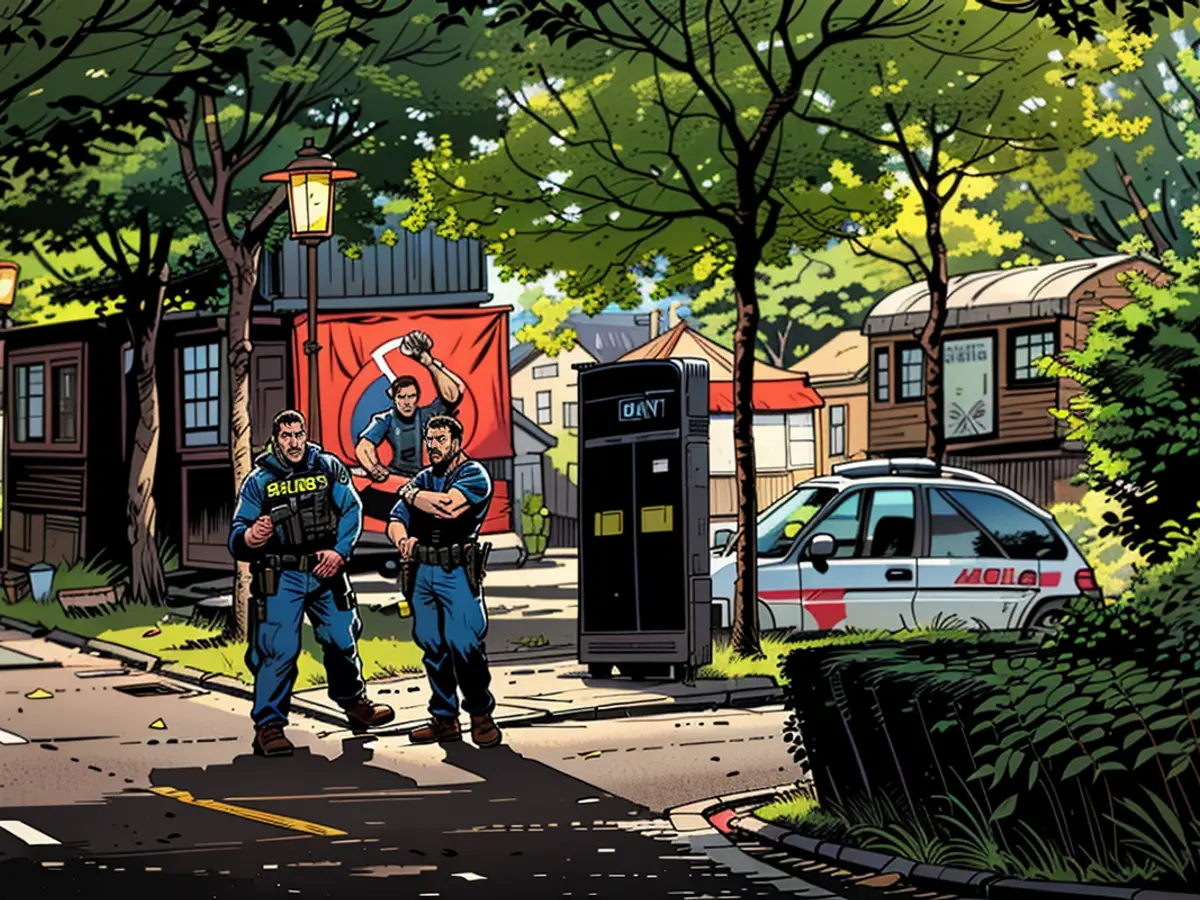Overview of the situation - Biden: Gaza deal could deter Iran from attacking
Iran could potentially refrain from its threatened retaliation against Israel if there's a breakthrough in negotiations for a ceasefire in the Gaza conflict, according to U.S. President Joe Biden. When asked by reporters, Biden responded, "That's my expectation, but we'll see." On Thursday, under U.S., Qatar, and Egypt's pressure, a potentially pivotal round of talks on a ceasefire and hostage release agreement is planned, likely in Qatar's capital, Doha. Unlike Israel, the Islamic Hamas has so far refused to participate, stating they "won't negotiate under fire," according to dpa sources from Hamas circles.
Indirect negotiations will continue even if Hamas does not participate, the "Wall Street Journal" cited Arab mediators. In such a case, they would inform the Islamic organization about the discussed conditions for a ceasefire. In a message from Gaza to Arab mediators, Hamas leader Jihia al-Sinwar stated that if Israel is serious about negotiating and including Hamas, it must first halt its military operations in the Gaza Strip, the newspaper reported. Sinwar is believed to be hiding in the extensive tunnel network of Hamas under the sealed coastal strip.
Biden: I won't give up
"We want everyone to show up, roll up their sleeves, and get to work on Thursday," said John Kirby, spokesperson for the U.S. National Security Council, in Washington. "And at the same time, we're watching very closely what Iran and its proxies might do this week." The White House is reportedly concerned that an attack by Iran and Hezbollah on Israel could sabotage negotiations for a ceasefire and undermine a potential agreement. "It's going to be tough," said Biden. "We'll see what Iran does, and we'll see what happens if there's an attack. But I won't give up."
It remains unclear whether and when Iran and Hezbollah will carry out the threatened retaliatory strikes following the killing of a Hezbollah military commander in Lebanon and the Hamas foreign chief in Iran's capital, Tehran. "Iran and Hezbollah don't know what to do. There are many plans, but no decisions yet," a U.S. official told the news portal "Axios." The U.S., Israel's main ally, has deployed additional military forces to the region for deterrence and to protect Israel and its own troops, fearing a larger Middle East war could result from a retaliatory attack on Israel.
Meanwhile, the U.S. government approved new large-scale arms sales to Israel. The Congress has been informed about the upcoming sale worth over $20 billion (around €18 billion), which includes more than 50 F-15 fighter jets, tank ammunition, and tactical military vehicles, the U.S. State Department announced. The fulfillment of such contracts is a long-term process. The delivery of tank ammunition is not set to begin until 2027, and the fighter jets until 2029. These are for the long-term equipping of the Israeli military, not for its current warfare with Hamas in Gaza.
The USA, Qatar, and Egypt recently pressured Israel and Hamas to reach an agreement with strong words. Both sides were urged to resume talks on Thursday to close all remaining gaps and begin implementing the agreement without further delay. They stated that they were prepared to propose a final bridging suggestion if necessary, which would resolve the remaining implementation issues in a way that meets the expectations of all parties. They also expressed their intention to be "creative and assertive" to bring the matter to a close.
Biden presented a draft deal at the end of May that initially provides for a full and unrestricted ceasefire of six weeks. During this period, a specific group of hostages would be released. In return, Palestinian prisoners held in Israel would be released. Afterwards, the fighting would be permanently halted, and the remaining hostages would be released. In the final phase, the reconstruction of the Gaza Strip would begin. Israeli Prime Minister Netanyahu denied allegations of setting new conditions.
US Government: Ben-Gvir's Visit to Temple Mount "Unacceptable"
Netanyahu's far-right coalition partners, Finance Minister Bezalel Smotrich and Police Minister Itamar Ben-Gvir, recently threatened to topple the government if Netanyahu agreed to a ceasefire on conditions they reject. Ben-Gvir provoked by visiting the Temple Mount, the third holiest site in Islam. The US government criticized this action sharply. "Let me be clear and unequivocal, the United States stands firmly for the maintenance of the historical status quo with regard to the holy sites in Jerusalem," said State Department spokesman Vedant Patel.
"Any unilateral action that threatens this status quo is unacceptable," said Patel. The US is closely monitoring actions that contribute to "greater uncertainty and instability in the region." Ben-Gvir's action falls under this category and distracts from bringing the negotiations over a ceasefire in the Gaza conflict and ultimately a two-state solution to a close. "We know how important this holy site is," said Patel. "We therefore call on all sides to respect the status quo."
Ben-Gvir had demanded the allowance of Jewish prayer at the Temple Mount. The site is also holy to Jews because two Jewish temples once stood there. Palestinians fear that Israel wants to expand its control of the holy site. Netanyahu's office stated after Ben-Gvir's visit that Israel's policy on this matter has not changed. Later, US Secretary of State Antony Blinken welcomed this clarification and stressed that they expect the Israeli government to prevent similar incidents in the future.
The ceasefire negotiations, taking place under U.S., Qatar, and Egypt's pressure, could potentially involve The White House, as President Biden expressed concern about potential Iranian or Hezbollah retaliation sabotaging the ceasefire agreement. Iran and its proxies, including Hezbollah, have reportedly been deliberating on their response following recent events, but no decisions have been made yet.






